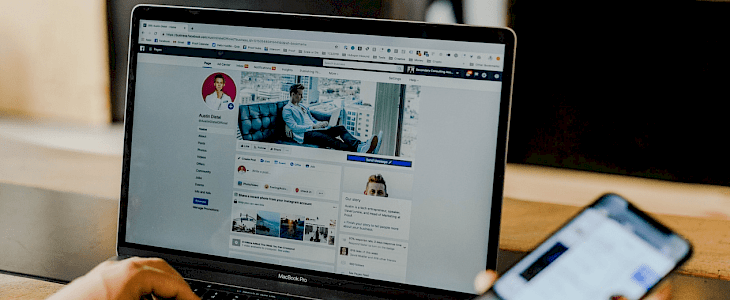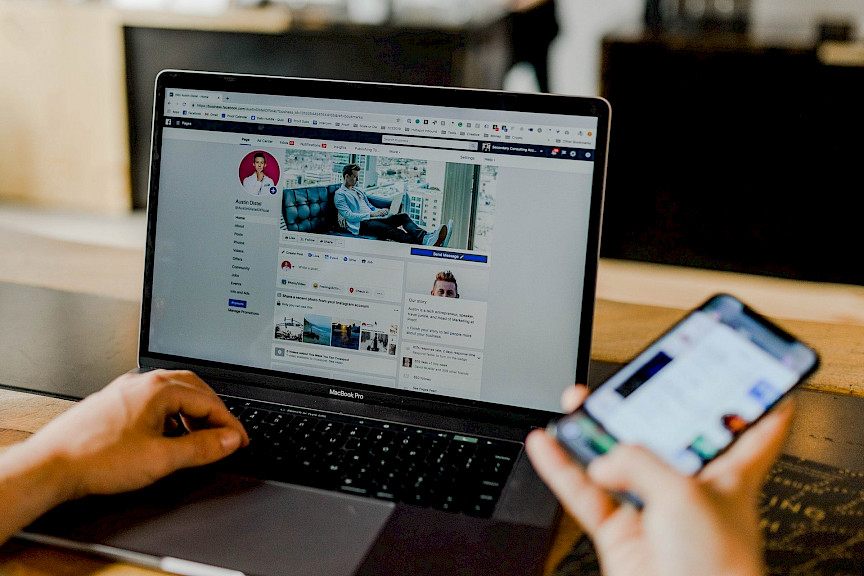
Human beings are naturally social creatures who need other people to thrive. That’s why there’s a famous saying, “no man is an island.” Individuals need to foster connections because it dramatically impacts happiness and mental health. Healthy relationships provide comfort, alleviate stress, boost self-confidence, deter depression, and increase longevity. The flipside could pose a severe risk to emotional and mental well-being.
In today’s modern world, people rely on social media platforms like Facebook, Instagram, Twitter, and Youtube to stay connected with family, friends, colleagues, and new acquaintances. While staying connected on these apps could help build relationships, especially for people far away, it can never replace real-world interaction and the human touch. Face-to-face contact is still crucial to stimulate the release of hormones that bust stress and make people happy.
Besides fostering connections, social media is an information resource for real-time news. Various apps provide links to learning materials like free ebooks, course materials, or essay writing service. The irony is that tech designed to bring people closer creates isolation.
Instead of trying to see one another, individuals tend to spend more time engaging on social media. Excessive use can lead to addiction and fuel negative feelings like sadness, frustration, loneliness, and dissatisfaction with life. With so many people using various apps, from young kids to seniors, it’s time for each person to reexamine habits and assess the dark side of social media to find a healthier balance.

The Positive Influences of Social Media
To fully understand its dark side, people must also know the benefits of using various online networking apps. Although virtual interactions and engagements on social media don’t produce the same psychological benefits as in-face interactions, there are still many positive influences, such as:
● Communicating with family and friends worldwide
● Staying updated on trends
● Finding new friends and communities with similar interests
● Joining causes and raising awareness for crucial issues
● Offering or receiving emotional support during trying times
● Looking for new jobs
● Serving as an outlet for creative expression
● Findling learning resources
Social Media Monster: The Dark Side
While social media use can foster connections, excessive usage, and misuse can adversely affect mental health. Spending too much time on various networking apps is now strongly linked to many negative experiences, such as the following:
1. Dissatisfaction: Most images on social media are curated to look perfect. Even though people know that photos on IG or videos on Tiktok have filters, individuals can still feel insecure about their appearance or achievements. Many articles have been written on how content creators only share snippets of their life, usually the high points. However, it still doesn’t lessen the feeling of envy. Users can feel dissatisfied and frustrated with their lives when they scroll through their feeds and see perfect photos of a holiday in Europe or read an update on a new promotion.
2. Isolation: High usage of various social media apps could make individuals feel more lonely. Instead of engaging in real-world interaction at gatherings, people now look at their phones. They may be together in a crowded room, but there’s no real connection or communication. Those wishing to improve overall wellness must balance their social media consumption.
3. Mood Disorders: Prioritizing online connections over in-person interactions puts individuals at risk of developing depression and anxiety. As noted above, humans are naturally sociable creatures that need face-to-face contact. One of the biggest stress busters is getting a hug or talking with someone who cares.
4. FOMO: The fear of missing out or FOMO perpetuates dissatisfaction and poor self-esteem, making people feel like they are missing something while others live better, more luxurious, and happier lives. On top of that, FOMO exacerbates social media addiction since everyone now tends to pick up their phones often to check on others’ status updates or to reply to every alert. To make things worse, people engage in risky behaviors like missing sleep and engaging in distracted driving to check their phones.
5. Self-Absorption: When people share their curated thoughts and tons of selfies with imperfections hidden by filters, these provide viewers with unrealistic images. Those obsessed with this habit may feel reluctant to show their true selves. Instead, they become self-absorbed in creating a perfect vision to garner more likes and reactions or to boost their friends and followers. Using various social apps can nurture an arrogant ego and promote toxic self-centeredness that may create distance from real-world friends.
6. Cyberbullying: Trolls abound on various platforms and feel strong since they’re hiding behind the anonymity of their monitors. These keyboard warriors tend to bully others and write offensive comments. Specific platforms can be a hotspot for spreading misinformation and rumors. Unfortunately, being bashed on social media could decimate an individual’s self-esteem and result in emotional scars.
7. Hacking: Many people become victims of hacking and scams because they overshare essential information on their profiles. Examples are impersonation scams on messenger with strangers pretending to be friends asking for money or phishing scams that entice users to click dangerous links. Other people with bad intentions scour profiles to see who’s on vacation so they can infiltrate homes and steal while the occupants are away. And these events can make victims feel worse about their terrible judgment.
Use This Double-Edged Sword Wisely
Social media usage is like a double-edged sword. The impact on quality of life depends on the one wielding the sword. Today, the majority of the population around the world can access social media anytime, anywhere, with smartphones and portable tablets, making it easier to keep in touch. And platforms are designed to capture attention and keep people online.
However, excessive connectivity can stimulate addiction and trigger impulse control problems like drugs or gambling. The constant notifications can affect focus, disrupt sleep, and glue people to their gadgets. All the likes make people feel good and compel them to spend more time on various apps, even when it’s detrimental to other areas of life, like distracting from work or school or neglecting genuine life relationships.
Final Thoughts
Those who spend more time online, compare themselves to others, feel dissatisfied with life, or use posts to brag must re-examine their social media habits. Balance is necessary because humans need downtime for self-reflection and other endeavors. Doing other things beyond social media is crucial for growth and holistic health.





